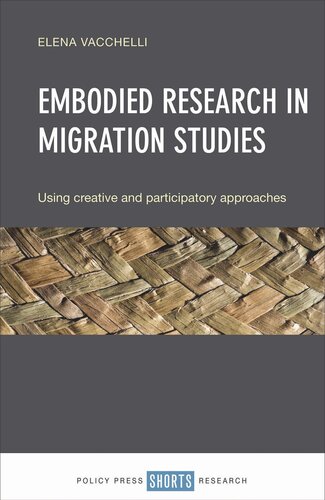

Most ebook files are in PDF format, so you can easily read them using various software such as Foxit Reader or directly on the Google Chrome browser.
Some ebook files are released by publishers in other formats such as .awz, .mobi, .epub, .fb2, etc. You may need to install specific software to read these formats on mobile/PC, such as Calibre.
Please read the tutorial at this link: https://ebookbell.com/faq
We offer FREE conversion to the popular formats you request; however, this may take some time. Therefore, right after payment, please email us, and we will try to provide the service as quickly as possible.
For some exceptional file formats or broken links (if any), please refrain from opening any disputes. Instead, email us first, and we will try to assist within a maximum of 6 hours.
EbookBell Team

4.0
16 reviewsThe definition of data in qualitative research is expanding. This book highlights the value of embodiment as a qualitative research tool and outlines what it means to do embodied research at various points of the research process. It shows how using this non-invasive approach with vulnerable research participants, such as migrant, refugee and asylum seeking women can help service users or research participants to be involved in the co- production of services and in participatory research. Drawing on both feminist and post-colonial theory, the author uses her own research with migrant women in London, focusing specifically on collage making and digital storytelling, whilst also considering other potential tools for practicing embodied research such as yoga, personal diaries, dance and mindfulness. Situating the concept of ‘embodiment’ on the map of research methodologies, the book combines theoretical groundwork with actual examples of application to think pragmatically about intersectionality through embodiment.